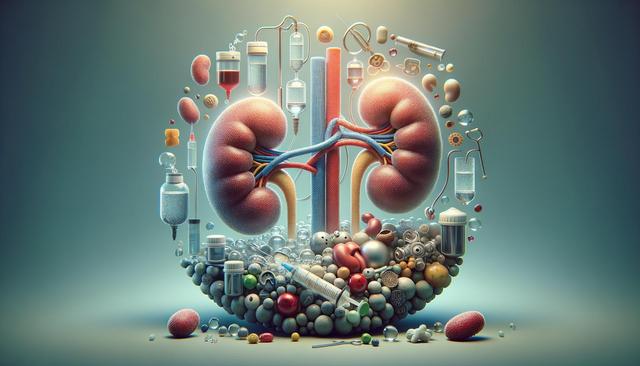Understanding Early Warning Signs of Kidney Disease
Kidney disease often progresses silently, making early detection crucial for effective management. Recognizing early warning signs can help slow the progression and potentially delay the need for more invasive treatments. Common early symptoms may include fatigue, swelling in the ankles and feet, changes in urination frequency, and persistent itching. These signs are often subtle and mistaken for other health issues, which is why regular health screenings play a vital role in early diagnosis.
Other early indicators include difficulty concentrating, muscle cramps, and high blood pressure that is difficult to control. While these symptoms may not immediately point to kidney disease, when combined, they warrant further medical evaluation. Individuals with conditions such as diabetes and hypertension should be especially vigilant. If you’re wondering what to drink to keep kidneys healthy, staying hydrated with water and avoiding sugary or high-sodium beverages is often recommended by healthcare professionals.
Stage 4 CKD: A Critical Turning Point
Stage 4 CKD signifies severe kidney damage, with an estimated glomerular filtration rate (eGFR) between 15 and 29 mL/min. At this stage, symptoms become more pronounced and complications more frequent. Individuals may experience shortness of breath, nausea, loss of appetite, and swelling in various parts of the body. The buildup of waste in the blood can also lead to changes in mental clarity and overall mood.
Understanding stage 4 kidney disease alternatives to dialysis becomes a pressing concern for many. While dialysis may eventually be necessary, some patients explore other management strategies such as strict dietary control, medication adjustments, and lifestyle modifications. A carefully planned diet for diabetes, high blood pressure and kidney disease can be instrumental in preserving remaining kidney function and improving quality of life.
Importance of Regular Monitoring and Lab Tests
Routine lab work and medical checkups are essential for monitoring kidney health. Blood tests that measure creatinine, blood urea nitrogen (BUN), and eGFR give insights into how well the kidneys are functioning. Urine tests help detect protein levels which, if elevated, can indicate kidney damage or stress. These tests are particularly important for individuals at high risk due to underlying chronic conditions.
Healthcare providers often recommend the following steps for ongoing monitoring:
- Regular blood pressure checks and glucose monitoring
- Annual kidney function tests, especially for high-risk individuals
- Tracking changes in weight, fluid retention, or urination patterns
In addition to medical tests, understanding what is the best thing to drink for your kidneys can support overall kidney health. Water remains a top choice, but some also benefit from beverages like herbal teas or fruit-infused water, depending on their medical guidance.
Nutrition and Lifestyle Adjustments
Diet plays a central role in managing kidney disease, especially in its advanced stages. A diet tailored for kidney health helps reduce the burden on these vital organs by limiting waste buildup in the blood. This often involves reducing sodium, phosphorus, and potassium intake. For those managing multiple conditions, a combined diet for diabetes, high blood pressure and kidney disease is essential to address all metabolic needs.
Helpful dietary strategies may include:
- Choosing fresh produce over processed or canned foods
- Limiting protein intake to reduce kidney workload
- Selecting whole grains and low-sodium options
- Staying hydrated with kidney-friendly fluids
Physical activity, stress management, and avoiding tobacco and excessive alcohol are also important lifestyle components. These changes, when implemented consistently, can help delay disease progression and improve overall well-being.
Exploring Alternatives to Dialysis
For individuals with stage 4 CKD, dialysis may seem inevitable, but it is not always the only option in the short term. Some patients manage their condition effectively through conservative care, which focuses on symptom control and quality of life without dialysis. This approach often involves comprehensive dietary management, medication, and regular monitoring.
Alternatives to dialysis can include:
- Use of medications to manage symptoms like anemia, bone disease, or fluid retention
- Close collaboration with a nephrologist to track disease progression
- Advanced care planning and support from a multidisciplinary healthcare team
For those seeking to support kidney function naturally, learning what to drink to keep kidneys healthy and adopting a disciplined approach to nutrition can be powerful tools. While these methods may not replace dialysis permanently, they can provide valuable time and improve the quality of life.
Conclusion: Proactive Management Makes a Difference
Recognizing the early warning signs of kidney disease and understanding stage 4 kidney disease alternatives to dialysis can empower patients to make informed healthcare decisions. Timely diagnosis, regular monitoring, and appropriate lifestyle changes are key to managing the condition effectively. Whether you’re exploring what is the best thing to drink for your kidneys or tailoring a diet for diabetes, high blood pressure and kidney disease, a proactive approach can help you maintain health and avoid complications. Collaborate with healthcare providers to create a personalized plan that supports your long-term well-being.




Leave a Reply